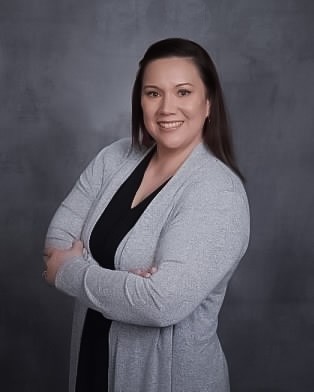
- Details
- By Chez Oxendine
- Energy | Environment
The Washington State Department of Commerce (WSDOC) plans to launch a new tribal solar energy program funded by a $156 million grant from the Environmental Protection Agency’s Solar For All initiative.
The program, which builds on work the state has done with Washington tribes in the past, will allocate funds for new solar batteries, storage, and workforce development, according to WSDOC officials.
The Solar for All initiative is part of a federal effort to expand access to solar energy, especially in underserved communities. With a total funding pot of $7 billion, the program awarded roughly $504 million specifically to tribes, tribal nonprofit groups, and tribal consortiums.
Washington is one of four states that outlined specific plans to fund solar programs in tribal communities as part of their Solar for All grant funding. The state intends to set aside a portion of the Solar for All award for the tribal program, according to WSDOC Senior Energy Policy Specialist Nora Hawkins. Initially, that set-aside was based on 26% of the state’s $250 million funding request. Because the actual award was less than requested, WSDOC has to renegotiate terms with the EPA before it can commit to a funding level for tribes, she said.
Hawkins emphasized the state’s commitment to tribes, acknowledging the important role they play in Washington’s clean-energy advancements.
“Across the board, we’re seeing tribes lean on clean energy and innovate,” Hawkins told Tribal Business News. “We also know that tribes are particularly vulnerable to climate change, such as those living on the coast. It makes sense to prioritize our funding to those tribes. That’s why we’re asking them how we should allocate these funds in a fair, equitable, and useful way.”
The new program will be developed over the yearlong co-design process with tribal governments. The collaborative approach will build on the success of the Washington State Tribal Climate Resiliency Program, where a multi-round grant structure ensured access for tribes, according to WSDOC Tribal Relations Coordinator Michelle Gladstone-Wade (Suquamish).
“We’ve been very deliberate in our work with tribes,” Gladstone-Wade told Tribal Business News. “Since that collaborative approach was very successful, we decided that that method would be best used here.”
 Michelle Gladstone Wade (Suquamish), WSDOC Tribal Relations CoordinatorThe urgency of the Solar for All application period, with a short window between the application opening (May 2023) and its due date (October 2023), left the state with little time to consult tribes as it developed its application. So the WSDOC embedded tribal consultation into the grant itself.
Michelle Gladstone Wade (Suquamish), WSDOC Tribal Relations CoordinatorThe urgency of the Solar for All application period, with a short window between the application opening (May 2023) and its due date (October 2023), left the state with little time to consult tribes as it developed its application. So the WSDOC embedded tribal consultation into the grant itself.
“We have questions we need to work with tribes to answer,” Hawkins said. “Do we prioritize tribes who are up and running on their projects and ready to deploy? Or should we target tribes that have some development to do?”
For the Suquamish Tribe, the program presents an opportunity to expand its early-stage solar program, according to Chairman Leonard Forsman. The tribe has some solar arrays on government buildings, but hasn’t yet expanded beyond that.
The Suquamish tribe wants to explore expanding solar into residences, Forsman said, but he’s quick to point out they are just one tribe. Other tribes are at different stages of their solar programs and would need different support.
“We’re investigating residential solar to get it out to households, and making that practical and feasible,” Forsman told Tribal Business News. “But it’s important to remember that the tribes’ needs are diverse within the state.”
Acknowledging the diversity of tribal needs, WSDOC established the Tribal Clean Energy Fund as a standalone funding source for tribes to pursue solar projects. The first round of funding for the TCEF closed in March, but the next is open until July 19. The third and final TCEF round concludes September 29. Applications are accepted on a rolling basis.
WSDOC developed the Tribal Clean Energy Fund to address complex grant structures through multiple programs, Gladstone-Wade said. Centralizing the funding puts the work on WSDOC to direct tribes to the right grants, while rolling deadlines allow tribes with less capacity to participate.
That, too, was built on feedback from consultations with tribal leaders, Gladstone-Wade said.
“What we heard is that we were one big blob that was hard to navigate,” Gladstone-Wade said. “The TCEF is pulling together strands of all these existing programs with tribal eligibility into an easy way to access funds. Now we can say, ‘tell me your vision, and I will go find the resources to help meet your needs.’”
The approach has been successful, enabling tribes to develop innovative solutions that often end up supporting other communities’ projects, Gladstone-Wade said. Tribes’ connection to their communities and their care in stewardship of their lands make clean energy projects a natural fit, she added.
“It’s this beautiful synergy,” Gladstone-Wade said. “It’s been really inspiring to watch these projects come together. They’re meeting their needs and they’re protecting what’s important to them and important to us.”
